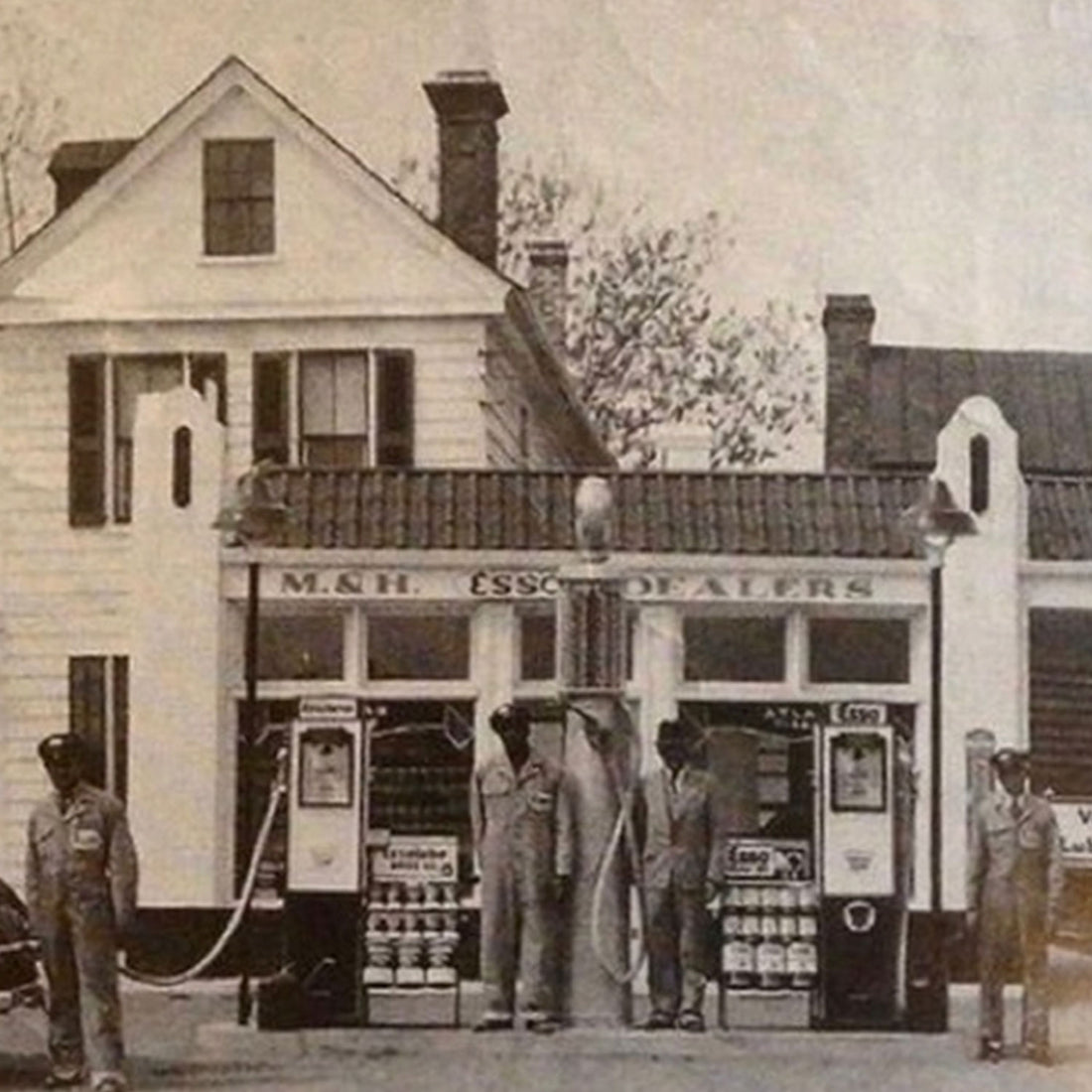
Economic Empowerment - Charleston SCEIRC Report
Team SightseeShare
On June 9th, 2020, the City of Charleston created the Special Commission on Equity, Inclusion, and Racial Conciliation "focused on the creation of measurable outcomes, promotion of greater accountability, and coordination of community wide efforts to achieve racial equity in our community."
In August, 2021, the SCEIRC released its recommendations. The complete, official document can be found here. In the interest of public consumption, we have translated the hard-to-read tables embedded in the report into bullet-pointed lists.
Each of the following areas of SCEIRC focus are outlined in separate posts:
- Criminal Justice Reform
- Economic Empowerment
- Health Disparities and Environmental Justice
- History and Culture
- Housing and Mobility
- Internal Review
- Youth and Education
This post is dedicated to Economic Empowerment and contains the stated Long-term goals, Objectives, Strategies, and Actions from the report.
The report contains the following additional details for each Action: Performance Measures, Evaluation Tools, Lead Staff, Oversight, and Due Date. Those have been omitted here for brevity.
______
LONG-TERM GOAL: Improve Access to Capital for Black-owned businesses in Charleston
OBJECTIVE: Provide funding to 300 new Black owned businesses to become sustainable/viable over a five-year period, as well as existing Black owned businesses
- Strategy: Establish Minority Business Operations Guaranty Fund
- Action: The City would capitalize a loan fund designed to assist minority businesses with operating costs. The funds would be provided to qualified lenders who agree to the favorable terms (0% interest, 0 collateral) of the City to guaranty loans to minority businesses. The City's guaranty will provide loans at 0% interest until the borrower has the ability to start paying on that loan.
- Strategy: Help Black Business Owners Become Black Building Owners: Buy Your Building Program
- Actions:
- The City would establish a 90% guarantee fund for any kind of real estate, C&I, or small business loans that can be layered with the equity fund. The City would make gap equity investments in a Black-owned business to allow Black building owners to buy their leased facilities or other buildings on the peninsula (or city of Charleston).
- Financial structure with building(s) that Black businesses can locate and eventually gain ownership of the space. The City would have an equity portion in a building that a Black business might want to purchase.
- Equity investment equal to gap amount of allow local conventional banks to finance permanent debt at 65% LTV including necessary improvements – 5 yr. term, 20 yr. am
- Mixed-used buildings can obtain residential improvement debt from CRC if residential units at 80% of AMI or less
- Equity converts to debt to be repaid to city when stabilized NOI allows Debt Service of 1.20 on senior debt + equity investment @ 4% with 20 year am or taken out when senior loan matures.
- Strategy: Establish a Black-owned bank within the City
- Action: Look to "court" an existing black-owned banking institution on the Charleston Peninsula (i.e. Optus Bank)
- Strategy: Create database of all Black-owned businesses within the City
- Action: Establish database of black-owned businesses that details type of business, revenue, employees. Database will not only help identify where there's opportunity for partnership with the city and other businesses, but be a compass for how the city is helping achieve their economic empowerment goals. Database will be responsibility of the city.
- Strategy: Create scorecard to track results of Black businesses: started, closed, funded, funding amounts, loans made, loan amounts.
- Action: Invest in educational initiatives through partnerships between relevant city departments and city commissions, Charleston and Berkeley County School Districts, local college and universities, and relevant local cultural/non-profit organizations.
LONG-TERM GOAL: Reduce the Black income poverty rate by 10% over 10 years and increase Black assets (home and business ownership) by 20% over the next 20 years.
OBJECTIVE: Improve economic well-being of Charleston's black population
- Strategy: Reparations
- Actions:
- Establish a funding mechanism to capture and match donations (ex. Clergy Council) to be used for reparations. Should be started with City dollars and grown through a match fundraising campaign.
- Poverty Index: There are around 10,000 Black people in the city who can’t afford to live here.
- Potential Distributions:
- i. Determine descendants of slaves and provide benefits to those similar to compensation to Holocaust victims and WW2 Japanese Americans.
- ii. Offer personal tax reductions.
- iii. The City would provide a guaranteed minimum income fund indexed to the cost of living for black residents that have lived in Charleston for 10 years or more or were born in the City of Charleston.
- Strategy: Individual Development Accounts (IDAs)
- Actions:
- Create a match savings fund for African American residents that can provide a 4 to 1 match for individuals' savings of up to the first $1,000 saved. The match funds would go towards down payment assistance for home purchase and business start-ups in the City of Charleston.
- IDAs create opportunities for those who can’t afford to contribute much.
LONG-TERM GOAL: Create a formal mechanism to ensure Black owned businesses have the opportunity to pursue and secure government projects.
OBJECTIVE: Support Black business development, start-ups, and expanding existing businesses.
- Strategy: Improve Government Contracting
- Actions:
- Prioritize Diversity Study to generate data and metrics on MWBs in the Charleston area.
- Change policy for classification for minority-owned business from two years to one year.
- Share information on how to do business with the city including access to BIDLINE, contracting, licensing/permitting.
- Achieve target spending of [x] % and {y} % with MWBs in 2021 and 2022.
- Establish system to track MWB spending
- Strategy: International African American Museum
- Actions:
- Generate IAAM revenue into the Black community.
- Create economic development plan for Black businesses outside/around the museum.
LONG-TERM GOAL: Create a system by which the City will be held accountable to ensure it continues to move Equity, Inclusion, and Racial Conciliation forward.
OBJECTIVE: Create a system by which the City will be held accountable to ensure it continues to move Equity, Inclusion, & Racial Conciliation forward.
- Strategy: Resolution from the City of Charleston stating their commitment to Equity, Inclusion, & Racial Conciliation
- Action: This resolution will be conspicuously displayed in all City buildings and properties (i.e. parks).
- Strategy: Creation of ED&I Department where the current EIRC Manager will become the Department Head
- Action: The City will dedicate the necessary resources (staffing) to support the head of this department.
- Strategy: Expand Office of Minority & Women Business Enterprise
- Action: The City will dedicate the necessary resources (staffing) to support the head of this office.
- Strategy: Creation of a Commission of EIRC
- Action: An ordinance will be drafted to formalize the CEIRC as a permanent commission to execute and continue the work of the SCEIRC, to be staffed by the Equity, Inclusion, and Racial Conciliation Manager.
- Strategy: The Final Report generated from the Special Commission on EIRC will become a living document to be updated on an “as-needed” basis determined by the Commission of EIRC
- Action: City departments will be expected to report on their progress to the EIRC against the strategies created by the SCEIRC.
___
The report contains the following introduction before listing the recommendations:
Economic empowerment is the capacity of individuals to participate in, contribute to and benefit from growth processes in ways that recognize the value of their contributions, respect their dignity, and make it possible to negotiate a fairer distribution of the benefits of growth. For African Americans, economic empowerment drives freedom, control, and power to break free from systemic barriers by establishing mechanisms that support generational wealth.
South Carolina, like most states in the country, is experiencing disparities in the numbers and profitability of minority-owned businesses. Business ownership is a key means for wealth building. In 2016, the average wealth of white families ($919,000) was over $700,000 higher than the average wealth of Black families ($140,000) and of Hispanic families ($192,000). According to the Federal Reserve Bank of Cleveland, the majority of the 27.2 million business firms in the country are microbusinesses. Twenty percent of all microbusinesses are minority owned, and nationally, only 2.4% of all microbusinesses are African American-owned.
In South Carolina, eleven percent (11%) of African American households own a business compared to twenty (20%) of White households. At the same time, census data show that minority populations are growing at a much faster rate than the white population and will be the majority by 2050. Additional disparities can be seen in business valuation. African American average businesses valuation is $59,168, compared to $504,422 for White owned businesses in the City of Charleston, the business valuation for African American business owners is $61,047, compared to $346,092 for White business owners.
Numerous implications exist within these contrasting trends, including potential effects on future small business existence, productivity and consumer spending in the state. And, to make matters worse, COVID-19 has caused record-setting numbers of small businesses to close, many studies pointing to a disproportionate number of those being owned by people of color. According to a Washington Post article dated May 25, 2020, "African American Business owners plummeted by 40 percent as the coronavirus shut down the economy. This was a much steeper drop than any other ethnic group."
Intentionally addressing the business success rate disparity with minority-owned businesses will not only help minority populations recover from the pandemic and flourish at historic levels, but it will also create a broader base of spending power and increase small business development, both key ingredients to GDP measures and crucial for the state to achieve more sustainable and geographically even economic growth. A key approach to addressing the success of minority- owned businesses is developing a strong entrepreneurship ecosystem in communities of color.
___
Hero image credit:
Featured in SCEIRC Report: Photograph of Robert F. Morrison's Esso Gas Station, 1986-1988, and undated, Box:24, Folder:54.Edmund Lee Drago collection, AMN 1051. Avery Research Center for African American History and Culture.



